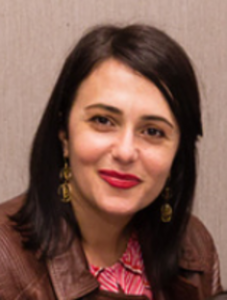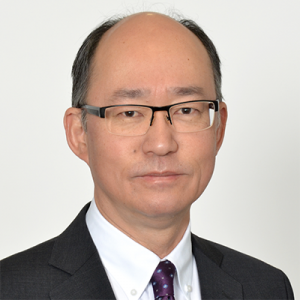IFA Virtual Town Hall Chat Summary 24 July 2020
The following chat summary is from the IFA Virtual Town Hall on 1 May 2020 with Mr. Rio Hada and Ms. Amal Abou Rafeh.
Watch the full town hall recording here: https://youtu.be/r7nzYvBf3gk
_____________________________________________________________________________________
Key Resources
- UN Secretary-General’s Policy Brief and Video regarding the impact of COVID-19 on older persons
- GAROP Open Letter in response to the UN Secretary-General – 5th May 2020
- HelpAge International Open Letter in response to the UN Secretary-General – 3rd June 2020
Upcoming Events
- IFA Virtual Town Hall – A Conversation on Global COVID-19: Emergency and the Experience of Older People, Rethinking Humanitarian Settings
Thursday 30 July 2020 at 7:00 am EDT (Toronto) - UNFPA and WHO Virtual Event
Older Persons & COVID-19: Strengthening rights and health through collective action
Tuesday 28 July 2020 at 10:30 am EDT (New York)
Live Stream at: https://www.youtube.com/watch?v=QEuGXJVJ8GI&feature=youtu.be
_____________________________________________________________________________________
Speaker Biographies
 Ms. Amal Abou Rafeh is Chief of the Programme on Ageing at the United Nations Department of Economic and Social Affairs in New York. She serves on the Secretariat of the General Assembly’s working group for the purpose of strengthening the protection of the human rights of older persons and is a member of the Steering Committee of the Titchfield City Group on Ageing-related Statistics and Age-disaggregated Data.
Ms. Amal Abou Rafeh is Chief of the Programme on Ageing at the United Nations Department of Economic and Social Affairs in New York. She serves on the Secretariat of the General Assembly’s working group for the purpose of strengthening the protection of the human rights of older persons and is a member of the Steering Committee of the Titchfield City Group on Ageing-related Statistics and Age-disaggregated Data.
Amal joined the United Nations in 2001, working in the areas of social policy, sustainable development and demography, and served on the Secretariats of the World Summit on Sustainable Development (2002) and the High-level Meeting on Youth (2011). She held positions in Beirut and New York. Before joining the United Nations, Amal lectured on analysis of social and demographic data. Amal was born in Riyadh, Kingdom of Saudi Arabia and holds a Master of Science in Population Studies from the American University of Beirut.
 Mr. Rio Hada is currently coordinating the work of the UN Office of the High Commissioner for Human Rights (OHCHR) in the area of economic and social rights. He also leads the work of OHCHR on the human rights of older persons, and serves as the joint secretariat with DESA for the Open-ended Working Group on Ageing established by the General Assembly with the mandate to strengthen the protection of human rights of older persons. Since joining OHCHR in 2000, he has worked on a variety of mandates related to the right to development and economic and social rights, and coordinated UN interagency efforts to integrate human rights in the work of the UN development system and to promote human rights-based implementation of the 2030 Agenda for Sustainable Development. Prior to OHCHR, he served at the UN Department of Economic and Social Affairs in New York, the UN Office at Vienna, UNDP and the UN Economic and Social Commission for Asia and the Pacific, on a wide range of issues including poverty and social development, post-conflict reconstruction and reconciliation, international trade and South-South cooperation. He holds a Master of International Affairs from Columbia University in New York.
Mr. Rio Hada is currently coordinating the work of the UN Office of the High Commissioner for Human Rights (OHCHR) in the area of economic and social rights. He also leads the work of OHCHR on the human rights of older persons, and serves as the joint secretariat with DESA for the Open-ended Working Group on Ageing established by the General Assembly with the mandate to strengthen the protection of human rights of older persons. Since joining OHCHR in 2000, he has worked on a variety of mandates related to the right to development and economic and social rights, and coordinated UN interagency efforts to integrate human rights in the work of the UN development system and to promote human rights-based implementation of the 2030 Agenda for Sustainable Development. Prior to OHCHR, he served at the UN Department of Economic and Social Affairs in New York, the UN Office at Vienna, UNDP and the UN Economic and Social Commission for Asia and the Pacific, on a wide range of issues including poverty and social development, post-conflict reconstruction and reconciliation, international trade and South-South cooperation. He holds a Master of International Affairs from Columbia University in New York.
_____________________________________________________________________________________
Multi-level agency collaboration
- While it is refreshing to hear the commitment of intergovernmental agencies to collaborate on issues aftecting older persons, are Member States hearing the message and taking action as well.
- Maybe actions are trickling up and trickling down concurrently and will eventually meet in the middle at the country level.
- UN/WHO national representatives could be more publicly present and have more frequent briefings.
- Regarding data, at the same time as improving the supply of data – which is sorely needed – existing gaps in data must also be made visible. It may be beneficial to include older age groups in UN charts and lists in order to demonstrate that the data is not available but is needed.
- How can collaboration on issues affecting older people within and between countries be strengthened when African states have minimal training on geriatrics and gerontology? How can member states be held accountable for their commitments to human rights issues among the ageing population?
Engagement of civil society and individuals
- Is there a socioeconomic framework for action and opportunities for civil society to support/engage at country level to make sure older people are included in local initiatives?
- Commendable work of civil society through open letters sent to the UN Secretary-General in response to his brief on the impact of COVID-19 on older people.
- How can older persons themselves be more involved in the UN processes, at the intergovernmental level and civil society level?
- There is concern that some governments are prioritizing economic recovery over health and wellbeing of the ageing population, citing that older persons are inherently vulnerable to COVID-19 and therefore are potentially expendable. What can be done at the UN level to protect older persons from such sentiments in their communities?
- While those in Canada have been very active in advocacy for a Convention on the Rights of Older People, are there other UN initiatives that can be supported, for instance the work of UNHRC? There may be additional agencies/stakeholders that can be a target for collective advocacy to support older people.
- As an older person there is great interest in being engaged and consulted in advocacy initiatives, but it is important to remember many older people are not very mobile. The perspectives and experiences of older people are essential and may be more beneficial than those of younger people with little or no experience of ageing.
- It is important for community advocacy organizations to remain connected and build relationships up to larger scale advocacy organizations and governments.
- The Global Alliance for the Rights of Older Persons invites organizations to participate in efforts to support an international convention on the rights of older persons.
- Age Action in Ireland demanded a Commissioner for Older Persons with no results as yet.
- UN/WHO guidance must be tailored to each country. Many institutions post-COVID will be reconfigured including WHO, and it is important that civil society and older people are truly engaged in shaping these international agencies.
- Activation and engagement of the voices of caregivers of older people may generate intergenerational awareness and input into shaping evolving agencies and initiatives.
- Many senior housing properties have influential resident councils to interact with management, which could be recruited alongside regional older persons’ groups to expand their voices in local level advocacy.
Non-COVID and COVID priorities
- With a strong focus on vulnerability of older persons to covid in all countries, is appropriate attention being given to the large number of acute and chronic morbidities to which many older people may also be vulnerable, and is there sufficient emphasis on healthy ageing during this pandemic? How much guidance is required from international agencies for Member States to support non-COVID priorities during this COVID era.
- In this pandemic period, access of older people to health services and pensions has been threatened; are there programmes in place for those affected?
- Social isolation and loneliness among older people during this pandemics tends to affect mental health status and must also be addressed in social support programmes.


